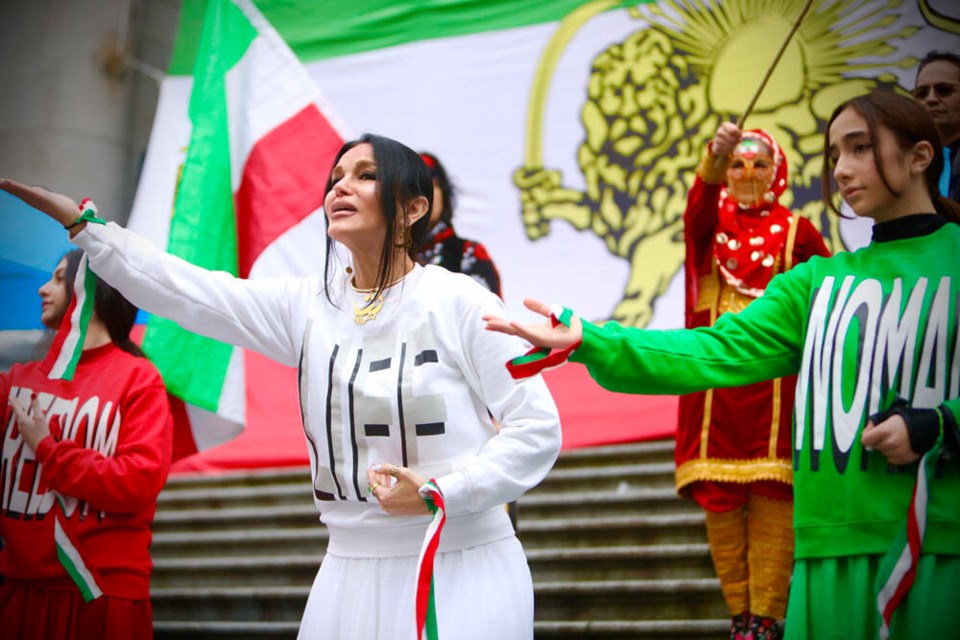For almost two decades Pooneh Alizadeh has been mixing cultures through dance from her North Vancouver studio.
Born and raised in Iran, Alizadeh studied art and graphic design at Tehran University before moving to Canada and establishing the Academy of Middle Eastern Dance. She started to teach a range of dances in various styles, including Persian folk dance, Sama, fusion, modern, Egyptian, and belly dancing.
“Through the academy, I started bringing people from different cultures together because diverse cultures coexist in Canada, and it was a great opportunity for me to introduce Middle Eastern folk and classical dance forms from my cultural heritage to them,” she said.
A year after establishing the dance academy, her daughter, Melody Teymourian, was born in Vancouver. Today, Teymourian assists her mother in managing the academy as a right-hand, in addition to being a professional dancer in Sama and Persian folk-dance styles. The academy was the vessel that exposed her to Iranian culture, she said.
“I started walking when I was eight months old, and I started dancing at the same time. We never had a babysitter. Instead of staying at home or in a daycare, I would be in class in that little carriage. So, I was just raised with that music, and I’ve always connected with it deeply,” Teymourian said.
Teymourian describes dance as a form of therapy.
“It taught me to be calm in stressful situations, and it’s a form of meditation for me. Dancing to a bunch of people and getting all glammed up brings me relaxation and that’s most important to me,” she said. “In Sama, dancers are spinning a lot and just get lost in the music because they are not very focused on their surroundings. It’s kind of just you with the Earth. It’s a lot like meditation. People think you get so dizzy, and it’s probably so difficult, but it’s very therapeutic.”
Alizadeh believes the primary goal of her academy is community connection. She recalls that when the COVID-19 pandemic and restrictions started, her classes got shut down, and she was upset. Her husband came up with the idea of online courses,
“People began to join, and it became a larger and larger community. It was a great feeling to have around 800 individuals from all over the world,” she said.
After the lifting of COVID-19 restrictions, she performed at an event celebrating Persian New Year, Nowruz, in North Vancouver in 2022.
Last year, when the Women, Life, Freedom movement started in Iran and protests spread around the world, Alizadeh performed dances in front of the Vancouver Art Gallery.
“Our goal was to spread awareness for people to understand the pain. Dance is a universal way of communicating with people who don’t speak Farsi. They can see the facial expression, our body language, and the pain that we’re going through.”
One dance video went viral on TikTok and was seen more than 20 million times.
In her native Iran, dance remains illegal but the practice persists as a powerful form of protest. Since the movement began, there have been at least 537 deaths and 22,000 arrests in the anti-government demonstrations.
Alizadeh also designed a performance inspired by Baraye, a song by Shervin Hajipour, incorporating English, Persian, and Kurdish languages. This song received the Best Song for Social Change Award at the 2023 GRAMMY Awards.
Hamid Jafari is a Vancouver-based freelance journalist who writes about the Iranian community in Canada, art, culture, and social media trends. His work for the North Shore News is supported by New Canadian Media. [email protected]



